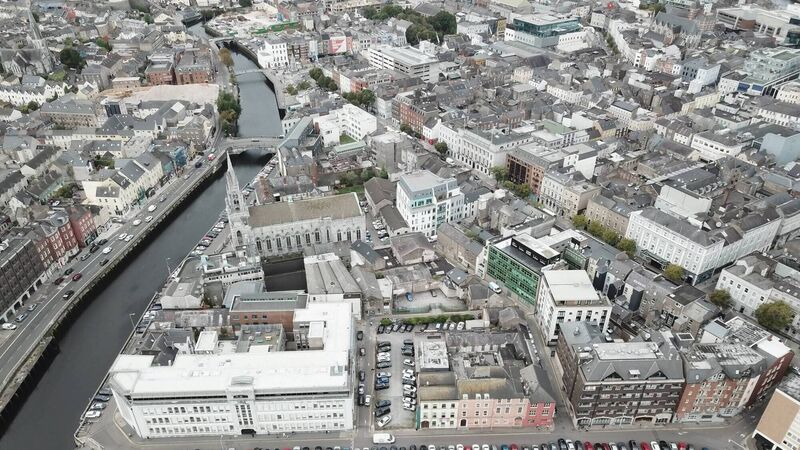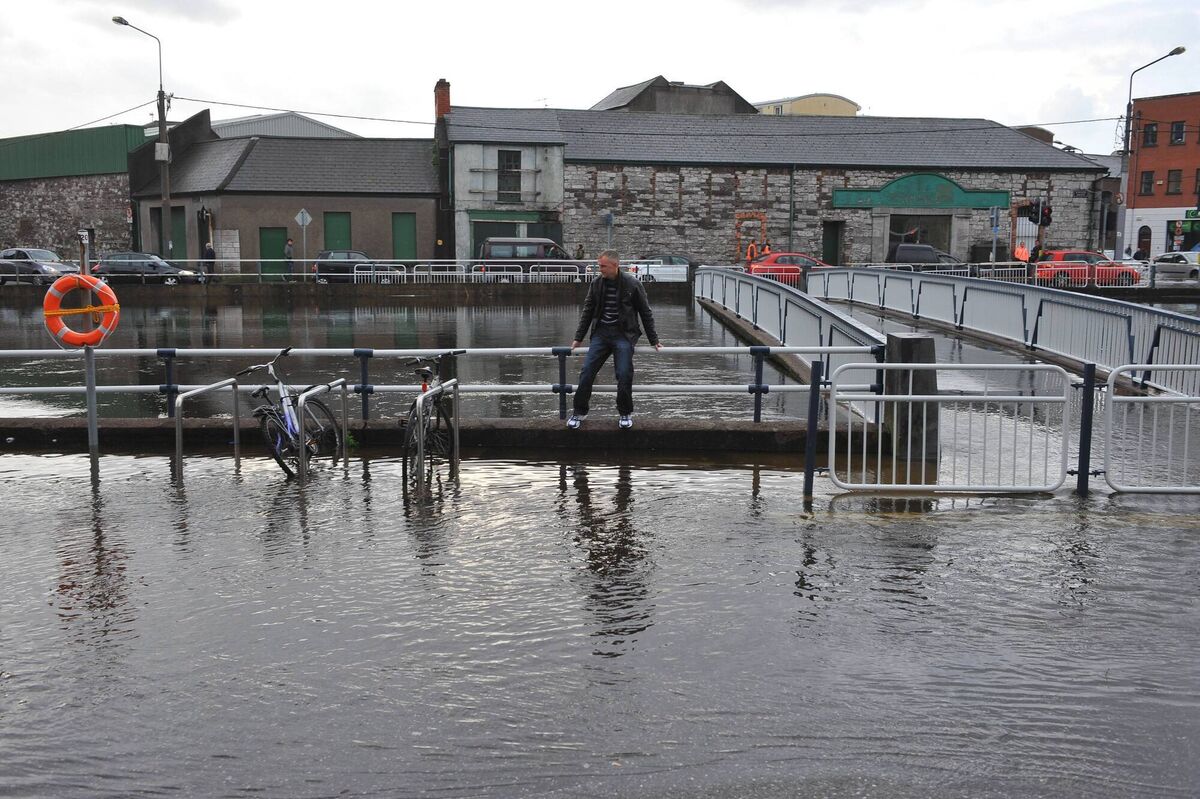Supreme Court dismisses Save Cork City appeal against flood relief works

Moores Hotel morrisons island morrisons quay AOH Hall
A community group has lost a Supreme Court bid to have planning permission for certain flood relief works in Cork city overturned.
The Save Cork City Community Association CLG (SCCA) in a leapfrog appeal to the Supreme Court wanted the decision by the High Court last year to refuse to strike down the planning permission for the works around the Morrison’s Island area reversed.
But in a unanimous decision on Wednesday a five-judge Supreme Court dismissed the appeal. It now means the work around Morrison’s Island can go ahead.
Mr Justice Seamus Woulfe giving the judgment of the court said he agreed with the High Court that An Bord Pleanála does have jurisdiction to conduct a screening for an environmental impact assessment (EIA) in an application under a certain section of the Planning and Development Act 2000. He therefore dismissed the appeal.
The other four judges — Mr Justice Peter Charleton, Ms Justice Iseult O’Malley and Mr Justice Gerard Hogan with Ms Justice Elizabeth Dunne — all agreed.
The Supreme Court previously heard the relief works at Morrison’s Island are necessary and a senior planning inspector’s report had shown that 374 properties will benefit from it.
An Bord Pleanála in June 2020 granted permission for remedial works to the existing quay walls in Cork city and the construction of improvement works and flood defence works between Parliament Bridge and Parnell Bridge along Morrison’s Quay and Fr Matthew Quay, and a short section along Union Quay close to Trinity footbridge at Morrison’s Island.
SCCA mounted a legal challenge in the High Court but Mr Justice Richard Humphreys found that the group had not made out grounds for an order quashing the permission granted to Cork City Council for the works. He also ruled that the group was not entitled to a stay on the works.

The group applied to the Supreme Court for a direct or 'leapfrog' hearing of the appeal against the High Court's decision. The respondents in the case were An Bord Pleanála, the Minister for Housing, Local Government and Heritage and the Attorney General with Cork City Council a notice party to the proceedings.
The appeal to the five-judge Supreme Court centred on a single issue on whether an Bord Pleanála had a jurisdiction to carry out a screening for the purposes of an Environmental Impact Assessment (EIA) Direction under a section of the Planning and Development Act.
It related to whether An Bord Pleanála has the power to conduct an EIA screening exercise under the Planning Act. The SCCA contended An Bord Pleanála can request additional information on the effects on the environment of the proposed development but has no jurisdiction to request the submission of an EIA report and no jurisdiction to carry out one.
The group argued that the High Court decision had profound implications for legal certainty in local authority development.






 App?
App?


